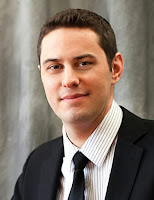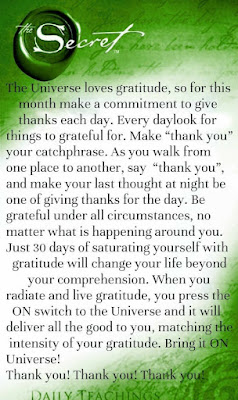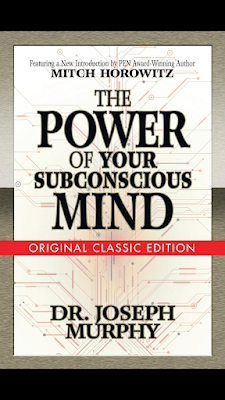 |
| Credit: Paul Donsbach |
Paul, Welcome to Authors by Sasha! Please introduce yourself and share with audiences how you were introduced to the world of writing?
Hi, Sasha, thank you for inviting me. I really enjoy your work and especially how you emphasize the spiritual aspects of your guests’ careers, achievements, and aspirations. This is really important and has become a big part of my work life too. As a first-time author of an adventure-romance series, I got involved in writing to indulge my curiosity about what spirituality really means in our daily lives. I’m an attorney in my “day job” and, from that perspective, have a strong belief that the truth is knowable and can be learned by looking at something from every angle and breaking it down with the right balance of objectivity, skepticism, and creativity. From my experience, this works much better as a team process, and I’ve been extremely fortunate to team up with a co-author who shares the same vision.
As the co-author of "Knights of the Lost Temple", book one tells the story of The Bronze Scroll. Where did the idea of this adventure-romance novel come from?
Working with my co-author, Alia Sina, we wanted to explore the world’s spiritual traditions through a story of adventure, romance, and discovery in both the ancient and modern worlds. Although we have different backgrounds and perspectives, we’re both big fans of mystery stories, and we wanted to combine all these elements into an adventure-romance series with a spiritual dimension. We chose the so-called Copper Scroll as our first mystery because it was supposed to be unsolvable, which we viewed as symbolic of the modern era, when all the great discoveries seem to be behind us. The Copper Scroll is a treasure map that was actually made of bronze and which lists 60 mysterious treasure sites in and around Jerusalem that no one’s ever been able to figure out.
The story revolves around at least three characters which include Sam Romero, an investigative attorney; Rebecca Schreiber, a reporter and Roy Griffin III, a rogue executive who's holding Rebecca hostage. How many characters are there in the first book, The Bronze Scroll, and how were you able to manage the character development process ensuring each person was fairly represented given their role in the story?
The first book has those three main characters and seven others who are important to the story. Before we started writing, we spent a month or two creating the characters and their backgrounds and stories. We wanted to get a strong sense of their personalities—their hopes and dreams and even what they look like—before we began writing the book. It felt at times like an audition process, as though we were interviewing characters to see if they would fit in our book. They became vividly real to us, and we knew that we would need a full series of books for their stories to fully unfold.
Which character was the most challenging to develop in the book writing process? Why?
Rebecca has been our most challenging character as writers. Working with Alia is pure magic, but it’s also a humbling experience. Even when I think my draft contributions are quite strong, Alia always has better ideas and greatly improves the original ideas and writing. This is particularly true in our writing about Rebecca. It turns out that all of my insights and perspectives on feminine emotions and behavior have been completely wrong. Co-writing Rebecca’s story with Alia has been a tremendous learning experience. Comically, the reverse is not true at all. Alia always understands Sam’s thoughts and feelings perfectly well, and I never have to explain the male perspective. It tells you quite a bit about the power of feminine insight that this is such a one-way street.
One of the goals of the book was to convey the 'impossible' from a real perspective as well as make possible the impossible. When working with the co-author Alia Sina, how were you able to balance each writer's perspective to be reflected sensibly throughout the novel?
Early in our writing process, Alia and I realized that the synthesis of our different writing styles and ideas was a perfect mirror of the ideas we wanted to write about. Despite our different backgrounds—Alia as a believer in new age Islam and miraculous possibilities, and me as a skeptical fan of science and logic from a Christian background—our common belief in the goodness of people and in the power of unity and tolerance created a workspace that made writing each chapter seem almost effortless. We began to understand each other’s perspectives so well that we could even start editing our own contributions from the other’s mindset, creating a surprisingly cohesive writing style and narrative.
Paul, in your opinion, what elements of writing enrich the storytelling process when a story embodies mystery, suspense, adventure and romance?
Alia and I both wanted to write about characters and a story that captures the intensity of how each of us feels about our lives and loved ones. Alia is married with young children, and I’ve never known anyone so deeply committed to her family and personal values. I’ve often been told that I can be fairly enthusiastic and opinionated about the things that I care about too. We agreed that an adventure-romance story based on an unsolvable mystery would be the best way to capture the intense emotions and experience of living “normal” lives in our modern world. Every day is really a miracle, and we wanted to celebrate that.
How does romance play a role in The Bronze Scroll? Would the omission of romance affect Sam Romero's commitment as an attorney to save Rebecca Schrieber from her circumstances?
Romance is life! This is really the essence of what our characters experience on their journeys. Romance is so much more than two lives shared together. It’s really about openness to the magic of connection, spirit, and love. Even if Sam and Rebecca hadn’t fallen in love, their relationship would still involve the sharing and togetherness that make life meaningful. Sam would still move mountains (or find a lost Ark) to rescue Rebecca, as she represents the goodness of the human soul and the power of higher purpose. Both in her career as a reporter and in her personal life, Rebecca has an unshakable commitment to ethics, truth, and meaning—along with a stylish flair for elegant fashion, farm-to-table cuisine, and seductive glances. Sam would do anything to stop Roy from harming her and, in our story, this means solving that impossible ancient mystery known as the Copper Scroll.
 |
| Credit: The Bronze Scroll |
The story references pieces of history which include Flavius Josephus' writings, the Great Revolt in 66 CE and historical events taking place in Jerusalem. These references supplement the realism of characters and their mission as they are in search of the hidden truth.
What was the purpose of integrating these references into the story?
How do you define the word 'truth'?
Out of all the characters represented in The Bronze Scroll, is there any character that is struggling more than others to identify with their 'truth'(s)?
When we started writing our novel, we trusted that Sam would learn enough about the Copper Scroll’s mysteries to rescue Rebecca and stop Roy’s sinister plans. But we never expected Sam and his friends to solve all of this Dead Sea scroll’s mysteries and figure out where all of that treasure was hidden. Sam knew better, and he started with the writings of the ancient historian Flavius Josephus. He downloaded the e-book version and ran word searches taken from the treasure sites listed on the Copper Scroll. As the supposedly unsolvable mysteries unraveled one by one, what emerged was a heartbreaking story of love and loss from the Great Revolt in 66 CE involving a father and son who found themselves on opposing sides of a civil war within the Judean revolt.
What we learned is that the Copper Scroll was really made as a peace message from that father to his son and from the Judean rebel leadership to the occupying Roman forces. This truth—that reconciliation and peace are the only paths forward—seems equally important today, as more children die in seemingly endless cycles of senseless violence. To Alia and I as writers, truth is really about the values that give meaning to our lives. The facts matter greatly, but the whole point of solving mysteries is to learn more about the deeper meanings within our lives and in the world around us.
For Sam, this journey has been especially difficult, as he started learning the surprising truth about his early life and family and the conflicts and challenges awaiting him. Having always relied on reason and logic to guide him, he must now learn to trust the unseen as he embarks on a mysterious spiritual path without knowing where it will lead.
The treasure map in the story relays messages through metaphors and legends. How were you able to integrate these riddles into the adventure's unfolding story without compromising the suspense for the readers?
As a writer, is there such a thing as lacing in too much suspense into a novel that it starts to distract readers from the main theme of the work?
As our characters began to uncover the metaphors and legends hidden within the Copper Scroll’s treasure descriptions, we had to discard our “unsolvable” mystery plot line and adapt our story to a more optimistic narrative. Maybe nothing is impossible after all. If even fictional characters in an adventure novel can decipher an ancient treasure map, does that mean that reconciliation can be possible and peace can be more than a dream? We knew that revealing the lost Ark’s hiding place would need to be saved as a suspenseful ending to the book, but we didn’t realize that this legendary artifact could have so much meaning for the modern world. Who knew that it could be a symbol of interfaith understanding and brotherhood?
The positive themes of change are exhibited throughout the book which call for unity, diversity and inclusion. This serves as a form of inspiration for the characters as well readers.
What does inspiration mean to you? How does this inspiration impact your decisions as a writer?
It's often said that inspiration comes from within. But, in our case, we feel that our characters are inspired by what connects them to each other and to the divine. As writers, we believe that this sense of unity is a great source of inspiration. It starts with inner reflection, of course, but for us life is also about shared experiences and active engagement in the world. We feel that our writing decisions reflect this sense of wonder about the connections between people, regardless of their backgrounds or beliefs.
There is a reference made to miracles as these characters search for the hidden truth. How do you define a miracle in the context of The Bronze Scroll?
Our characters experience miracles as the events in their lives in which physical limits are transcended by the force of universal love. As he awakens into a more spiritually centered life, Sam begins to learn the truth about his life and destiny through mysterious dreams and legends that become increasingly important in his life.
What will be unique about the second book in 'The Knights of The Lost Temple' series as it's being written?
Most of our characters are returning for the second book, The Last Pharaoh. Sam travels to Egypt, Greece, and Italy on work assignments and runs afoul of an organized crime ring looting archaeology sites. After another whistleblower report, he wonders how this crime ring could possibly be involved in a massive data breach. Will he solve another mystery? Will the sparks of romance between Sam and Rebecca lead to true love? What about that secret knighthood? We can’t wait to find out!
Spirituality is sprinkled in the book celebrating its diverse traditions that can assist with dissolving conflict in society.
What aspects of spirituality resonate with you?
How were you introduced to these different facets of spirituality?
When I was 13 years old, my sister died after a long fight with leukemia. She was only a year older than me, and we were quite close. As she struggled to stay with us at the hospital, a nurse hugged me and held me until the end. The most wonderful feeling of joy and peace enveloped me, and I could sense my sister’s soul passing to a realm of pure love. Like Sam in our novel, my life since then has had a split-screen quality. On the one hand, I’ve always felt deeply connected to a sense of having directly experienced the divine, my own soul, and those of my loved ones. But like my sister, my conscious mind and body have often felt resistance and struggle against a seemingly capricious creator who can take everything we love away from us for no reason at all. I want to continue exploring this tension between the conscious mind and soul, and I want to understand better what it means to be an eternal being experiencing mortal life in what can seem like an unpredictable world.
Paul, you're also a lawyer. When did you discover that a renewed commitment to spiritual ideals is a viable alternative to mitigating society's historical and present challenges?
Like many lawyers, I began my law school studies with a sense of excitement about having a career that can serve justice and the common good. But, as every lawyer quickly learns, our legal system isn’t very good at doing this, and it often seems that we’re just serving ourselves with insider games and mindless conflict. I think we owe it to our clients to do better, which I have come to believe means reinvigorating the values that created our legal system in the first place. How can we work for justice if we don’t even talk about what that means or how to balance the needs of society with personal freedom?
No sensible person wants our government to tell us what to believe or how to honor the divine. But does the public space have to be a spiritual vacuum, with logic and reason unmoored from the values that make life meaningful? Many thoughtful writers have pointed out that our world’s current problems—growing inequality, racial intolerance, violence, and climate change—are essentially spiritual in nature. Mankind has made moral progress to be sure, but this has always been achieved through expressions of shared values and spirit, not the empty legal calculus and rules that govern so much of our society today. This is one of the reasons I wanted to start writing, so that I can use my experiences to help those calling for change.
For writers wanting to entertain a partnership in writing, how was your experience collaborating with a co-author?
Working with my co-author Alia has been such a wonderful experience that I can’t imagine ever writing a solo project. Not only are the writing and plot so much stronger, but the process really becomes a joy. Hardly a day goes by that one of us isn’t calling up the other, excited about a new story idea or something new in our writing.
What writing tips do you have for fiction writers?
Writing should be fun. When Alia and I started writing The Bronze Scroll, I had assumed there would be difficult days and I might even get writer’s block. None of that ever happened, and both of us thought it was the most enjoyable work we had done.
Live in the moment. The old advice about writing from your experience is so true. I would go beyond that and say that being present while you’re writing is important too. Take time to meditate or relax before you start a writing session. It will make a huge difference and will surprise you with what happens next.
Think big. It’s often said that dreams come true. Our thoughts become our reality. This is so true, so why not take this approach to your writing? You might even solve an ancient mystery or meet someone new who’s just like one of the characters in your book.
Please share with audiences how they can support your work.
Thank you for asking and, first of all, please consider donating to help the current Afghan refugee crisis through the Red Cross, the Red Crescent, or another charity working on this problem. Alia grew up in an Afghan American family and feels a personal connection to this crisis. Promoting unity and solidarity across borders is one of the themes of our book series, and we hope that potential readers will consider helping in this time of need.
Then, for potential readers, The Bronze Scroll is available in local stores and on Amazon and Google Books, with links available on our website: www.knightsofthelosttemple.com.





































